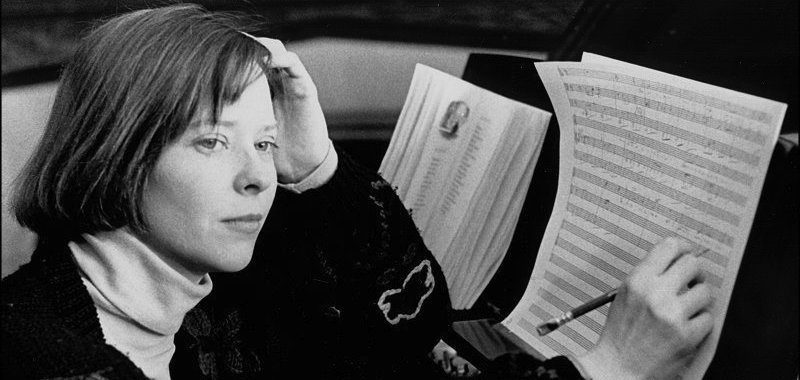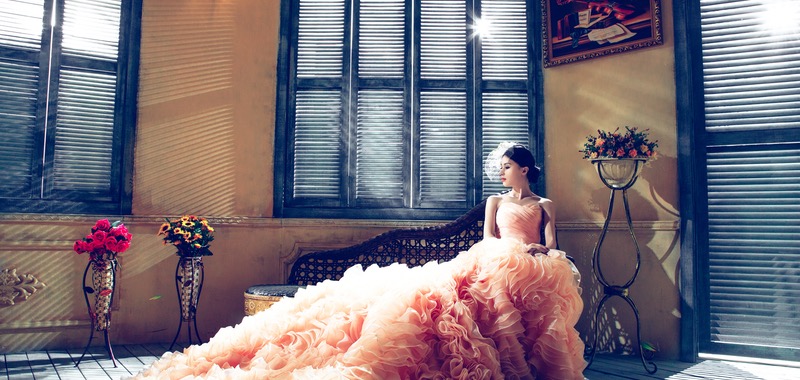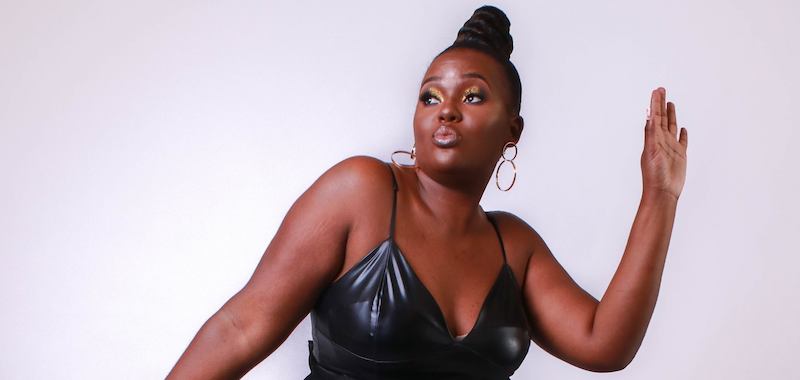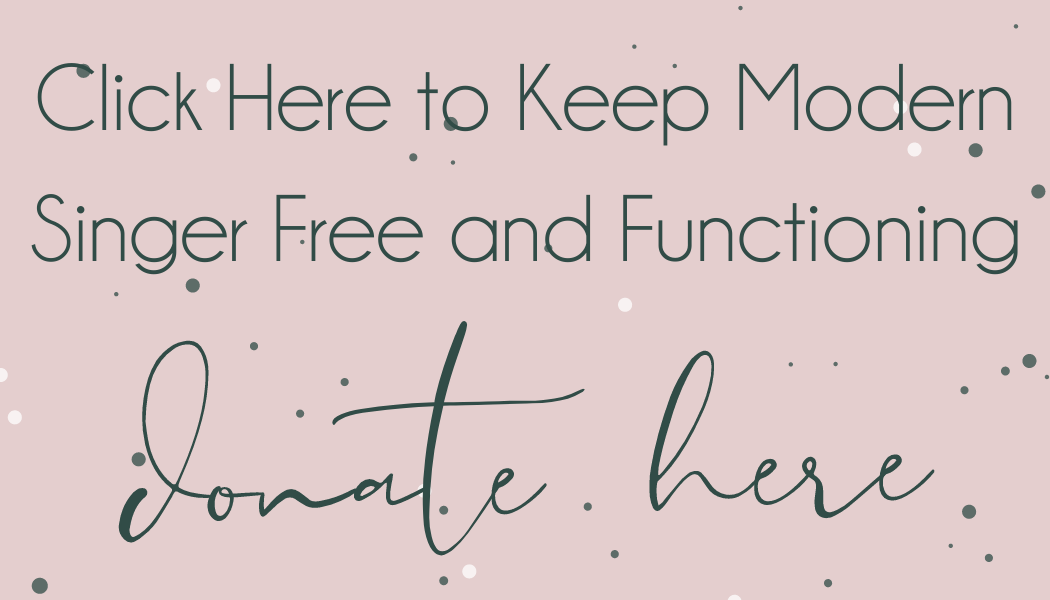Juliana Hall, American Art Song Composer
I write art songs to share poetry. Poets see truth and beauty in even the most ordinary of things and that is what I wish to express. I'm not trying to express myself as a musician or as a composer. The structure of the text and the musical architecture of my song should be in sync in order to express the truth and beauty a particular text illuminates. That truth and beauty is outside of me. I do hope the music I write will be beautiful and truthful to the text, but first and foremost is the beauty and truth of the poetic text of the song.
Where do you draw inspiration?
In my early days, I would first have an image. When asked to write a song cycle for Dawn Upshaw, I had an image of dark interspersed with light. This led to the idea of night and of all the many things that happen at night, to the sound of a cricket singing, a lullaby, a nightmare, insomnia, a spider sewing a web without light, and finally the comfort music gives to those who wish to rest.
These days, I take a more open approach. I start reading through my books of poetry to see if anything sticks. The type of voice I am writing for often guides these questions. For example, I decided Shakespeare would be perfect for the song cycle I wrote for countertenor Brian Asawa. The countertenor voice really took a hold of composer’s imaginations during Shakespeare’s lifetime. Also, the lightness of a high male voice, not weighing the text down, and retaining buoyancy to the sound seemed to go very well with texts from Shakespeare's plays.
What is your composition process?
The first thing I do is find poetry that goes together to form a cohesive song cycle. The words and the ideas they represent are important element of any song cycle. Without a solid idea, and without the right words to give form to a solid idea, all you have are bits and pieces of music.
Before I begin composing, I read the poem I’ve selected over and over. Then I speak the poem aloud just as many times. I do this so the meaning, sound, and rhythm of the text are what are foremost in my conscious thoughts. I have always composed in one way and one way only: improvisation at the piano. At this point, I am more concerned with music as a carrier for text and as a medium through which the text can come to life for the listener.
In recent years, I have become more computerized which has somewhat changed my composing process. I start by writing a draft by hand then input the score into the Sibelius. Sibelius allows me to see the piece more clearly, and I am in a better position to edit and tweak each song. Once I feel happy with what I have, I give the file to my husband who creates the final layout of the piece. We go back and forth proofreading a half dozen times until neither of us can find any errors.
Who or what influences your compositions the most?
Great pianists, great art song composers, and great poets have influenced my compositions.
My first experiences in music were as a pianist studying the works of Bach, Mozart, Beethoven, Schubert, Chopin, Brahms, Schumann, and others. I think by osmosis I internalized a lot of what makes music work and what makes piano writing good. Later, I was very inspired in terms of my piano writing by listening to great pianists like Alfred Brendel perform Beethoven, Martha Argerich play Chopin, Pierre-Laurent Aimard perform Ligeti, and Jeremy Denk play Ives. I developed a vivid idea of how good a piano can sound and how many varied sounds are possible from the instrument.
Great art song composers also influenced me. The Casement Fund Song Series, run by Sparks & Wiry Cries, sponsored a concert of my songs at the National Opera Center in New York City this past year. The purpose was not only to present my compositions, but also songs of composers who were most influential in my development. These composers were Dominick Argento, Samuel Barber, Benjamin Britten, George Crumb, Ivor Gurney, Charles Ives, and Ruth Crawford-Seeger. As you can see from my list, I'm not as inspired by contemporary, avant-garde, or new music. That being said, songs by English composers like Ralph Vaughan-Williams, Frank Bridge, John Ireland, and Jonathan Dove, as well as American composers like Tom Cipullo, Lori Laitman, Libby Larsen, Sheila Silver, and Alan Louis Smith, do supply inspiration to my compositions.
The third group of people who have inspired me are the great poets. Authors like W. H. Auden, Emily Brontë, E. E. Cummings, Emily Dickinson, Anne Frank, Thomas Hardy, James Joyce, Edgar Allan Poe, William Shakespeare, Sara Teasdale, and so many more have written such beautiful poetry that has inspired me to write. I also enjoy the poetry of living people. I am currently setting a soprano-writer’s set of six poems to music, and even composing a small cycle of songs from words written by a gifted teenage boy with autism. This last project is a special commission for the Lynx Project's "2017 Autism Advocacy Project."
Do you have a favorite piece you’ve composed? If so, what piece and why?
My favorite piece would have to be "O Mistress Mine," my song cycle for countertenor and piano on texts from plays by William Shakespeare. This is my largest work, comprised of twelve songs and lasting 42 minutes. I wrote this piece for the renowned countertenor Brian Asawa and was so inspired by his uniquely plush sound. We were so excited to premiere the piece together, but then he died suddenly with just a few months to go before our premiere. One of his friends, countertenor Darryl Taylor, stepped in and learned this mammoth work in a mere couple of months, and we premiered it together last August at the Norfolk Chamber Music Festival. Darryl brought such deep musicality and creative imagination to the songs. The premiere was beautiful and the resulting recording is stellar.
In the composition, performance, and recording of "O Mistress Mine," I came about as close as I have ever come to satisfying my desire to convey a set of texts with music that is both reflective of their message and rendering it in a completely unique way. This is not an easy thing to do with a text like Shakespeare, which has literally been set by hundreds of composers over the past 400 years.
What famous artists have performed your works? How did it feel when they brought your piece to life?
I have been very fortunate with the singers and pianists who have performed my songs. My first commission was from the Schubert Club of Saint Paul, MN, for a young singer who was making huge waves in the music world way back in 1987. That singer was Dawn Upshaw. Since that first commission, I have had the privilege to write songs for and hear my songs performed by many great singers. A few of which include Brian Asawa, Darryl Taylor, Susan Narucki, Molly Fillmore, Jayne West, Richard Lalli, Stephen Salters and David Malis. In addition to these wonderful singers, I've also been blessed with so many fine pianists performing my songs as well including Donald Berman, Margo Garrett, Kayo Iwama, Gilbert Kalish, Mark Markham, Christopher Oldfather, J.J. Penna, among many others.
I particularly love when voice students study my songs. Students are vital because they represent the future of this art form! It is a deep honor for me to be a part of a young person’s life, to add another dimension to their understanding of their craft, and to be a part of their artistic and personal development. I embrace each and every performer wherever they are at in their musical journey. Each is important as a person and as an artist, and I thank each of them who have allowed me - through my songs - to be a small part of their lives.
We encourage you to listen and watch Juliana’s works performed on her YouTube channel.








